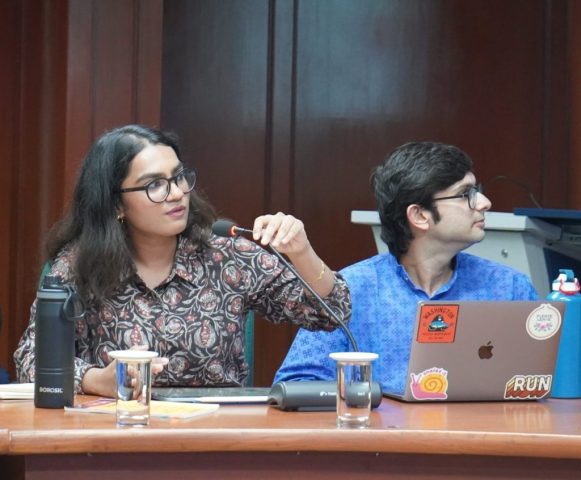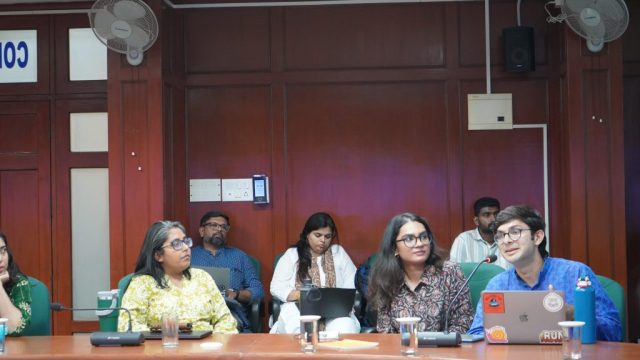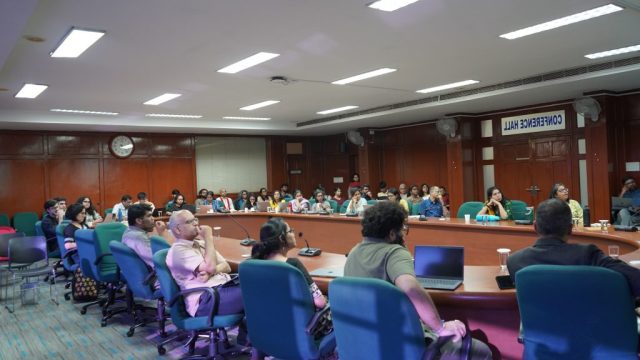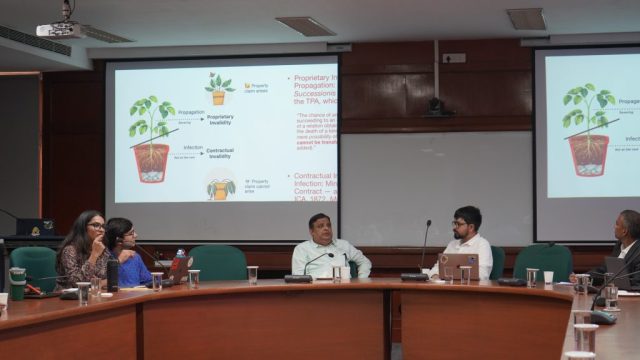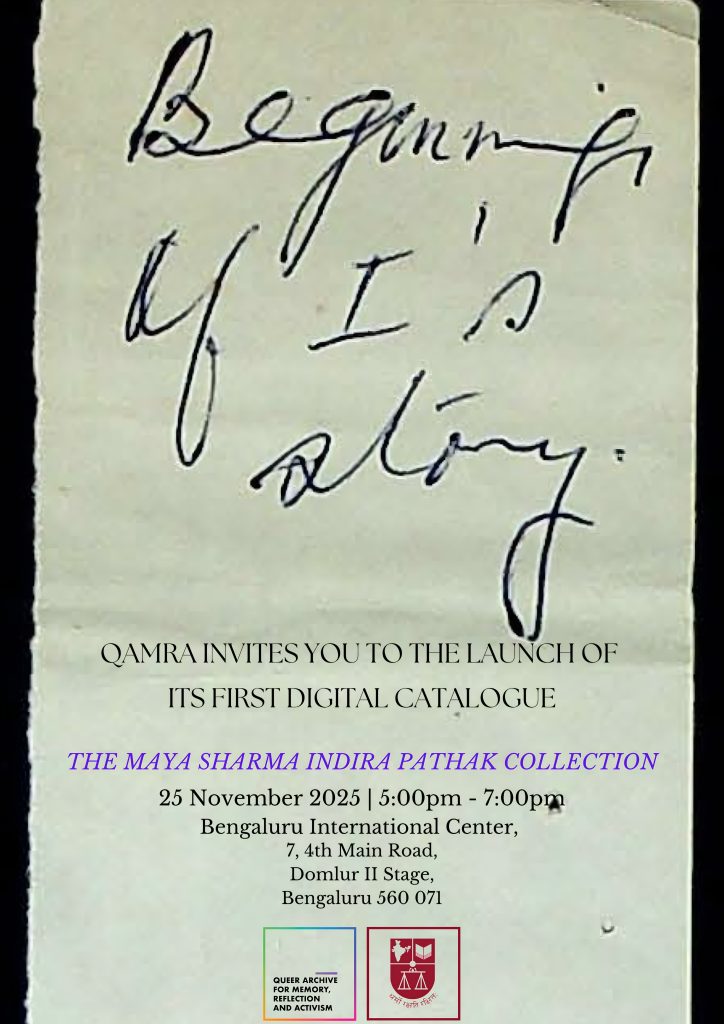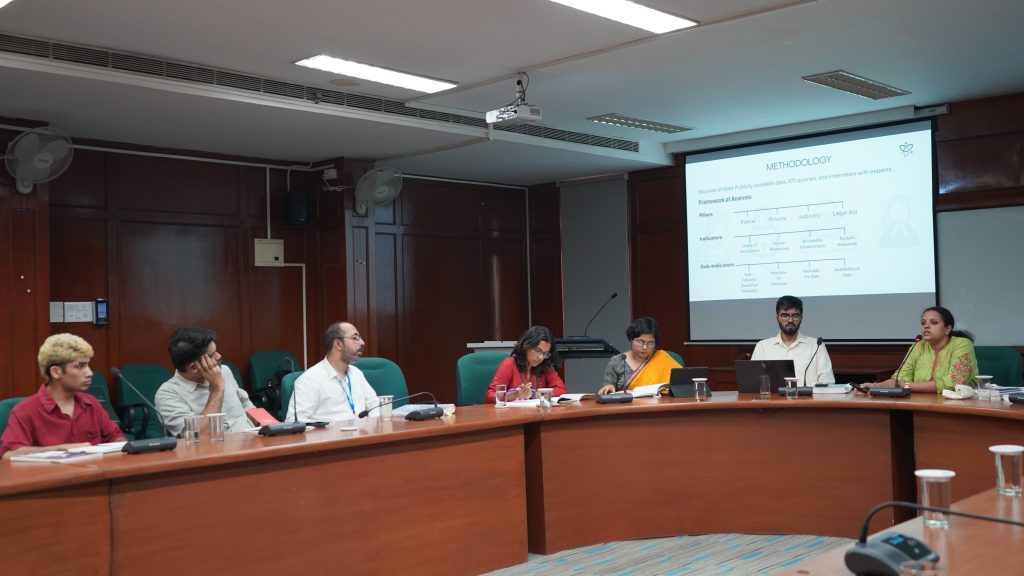 The National Human Rights Commission Chair on Human Rights, NLSIU in collaboration with Pacta, a Bengaluru-based law firm, organised a panel discussion on ‘Access to Justice’ based on a recently released report, on Wednesday, November 26, 2025.
The National Human Rights Commission Chair on Human Rights, NLSIU in collaboration with Pacta, a Bengaluru-based law firm, organised a panel discussion on ‘Access to Justice’ based on a recently released report, on Wednesday, November 26, 2025.
The Rights of Persons with Disabilities Act, 2016 (RPwD Act) guarantees access to justice for persons with disabilities. Pacta’s ‘Access to Justice for Persons with Disabilities: A Data-informed Report’ examines how well that guarantee has translated into improved access across four critical pillars of the Indian Justice System: Police, Prisons, Judiciary and Legal Aid. The report primarily focusses on the lack of data across the system, which invisibilises the struggles (such as inaccessible infrastructure, lack of sensitivity within institutions, disparate mandates at various levels, and non-uniform practices across States) faced by persons with disabilities. This leads to a gap in awareness at an institutional level, making it challenging to take corrective measures.
This panel discussion began by sharing some of the major findings from the report. This includes a brief overview of the mandates for inclusion and data collection across the four pillars, the availability of data based on specific indicators and sub-indicators, some of the major issues that have been identified and recommendations to mitigate them. The discussion then turned to the diverse group of panellists, to seek their views on the inaccessibility plaguing our justice system, the utility of data-availability to tackle systemic challenges and analyse potential solutions to improve access to justice for persons with disabilities.
Panellists
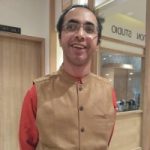 Dr. Viswesh Sekhar, a senior advocate specialising in disability law. He has a Ph.D. from Symbiosis International University, on “Reasonable Accommodation and Accessibility as Human Rights of the Physically Disabled Person in India”. Dr. Sekhar has contributed to key reports and legal reforms, including the “Finding Sizes for All: A Report on the Status of the Right to Accessibility in India” report of the CDS Centre NALSAR, commissioned by the Supreme Court and quoted in the landmark Rajive Rathuri judgment. He was the only lawyer in the 16-member team of NGO representatives from India who attended the CRPD Committee at the United Nations, Geneva in 2019.
Dr. Viswesh Sekhar, a senior advocate specialising in disability law. He has a Ph.D. from Symbiosis International University, on “Reasonable Accommodation and Accessibility as Human Rights of the Physically Disabled Person in India”. Dr. Sekhar has contributed to key reports and legal reforms, including the “Finding Sizes for All: A Report on the Status of the Right to Accessibility in India” report of the CDS Centre NALSAR, commissioned by the Supreme Court and quoted in the landmark Rajive Rathuri judgment. He was the only lawyer in the 16-member team of NGO representatives from India who attended the CRPD Committee at the United Nations, Geneva in 2019.
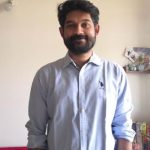 Mr. Shreehari Paliath, India Justice Report. Formerly, as a journalist, he has reported on social justice issues including labour, migration and criminal justice, and public policy, using public data. He won the Laadli Media & Advertising Awards for Gender Sensitivity in 2023 and 2025, and is a recipient of MSF’s Without Borders Media Fellowship.
Mr. Shreehari Paliath, India Justice Report. Formerly, as a journalist, he has reported on social justice issues including labour, migration and criminal justice, and public policy, using public data. He won the Laadli Media & Advertising Awards for Gender Sensitivity in 2023 and 2025, and is a recipient of MSF’s Without Borders Media Fellowship.
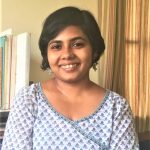 Ms. Darshana Mitra, Assistant Professor of Law and Director-Clinics at NLSIU. Darshana has previously taught at the West Bengal National University of Juridical Sciences (WBNUJS), Kolkata, and has worked as a researcher at the Alternative Law Forum, Bangalore. She is also the co-founder and director of Parichay, a collaborative legal aid clinic that works on citizenship deprivation and statelessness in Assam. At Columbia, she was a Harlan Fiske Stone Scholar and a recipient of the Human Rights Fellowship, the Fulbright-Nehru Master’s Fellowship, and the 2019 Human Rights Institute Commendation for Leadership and Commitment in Human Rights. Her interests lie in citizenship and immigration law, human rights law, gender, child rights, and clinical legal education.
Ms. Darshana Mitra, Assistant Professor of Law and Director-Clinics at NLSIU. Darshana has previously taught at the West Bengal National University of Juridical Sciences (WBNUJS), Kolkata, and has worked as a researcher at the Alternative Law Forum, Bangalore. She is also the co-founder and director of Parichay, a collaborative legal aid clinic that works on citizenship deprivation and statelessness in Assam. At Columbia, she was a Harlan Fiske Stone Scholar and a recipient of the Human Rights Fellowship, the Fulbright-Nehru Master’s Fellowship, and the 2019 Human Rights Institute Commendation for Leadership and Commitment in Human Rights. Her interests lie in citizenship and immigration law, human rights law, gender, child rights, and clinical legal education.
 Ms. Varsha Aithala, Assistant Professor of Law and a doctoral candidate at NLSIU. She has worked as a corporate lawyer in leading Indian law firms and has significant corporate practice experience in India and the United Kingdom. Previously, she was a research fellow and faculty at the School of Policy and Governance, Azim Premji University. Her teaching and research interests cover the areas of access to justice, law and technology, private law and social investment. Varsha is qualified as a solicitor in England and Wales and as an advocate in India. Her doctoral work focuses on legal aid and courts in India.
Ms. Varsha Aithala, Assistant Professor of Law and a doctoral candidate at NLSIU. She has worked as a corporate lawyer in leading Indian law firms and has significant corporate practice experience in India and the United Kingdom. Previously, she was a research fellow and faculty at the School of Policy and Governance, Azim Premji University. Her teaching and research interests cover the areas of access to justice, law and technology, private law and social investment. Varsha is qualified as a solicitor in England and Wales and as an advocate in India. Her doctoral work focuses on legal aid and courts in India.
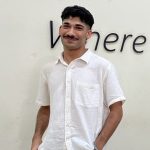 Mr. Mohammad Abdurazak, a first-year LLB (Hons.) student at NLSIU who holds a BA in English from St. Joseph’s University, Bangalore. A para-athlete who has represented Karnataka at the National Paralympics in swimming, he has also written on disability and allied subjects, with publications in the Museum of Art and Photography and other outlets. His research interests include disability praxis and critical disability studies.
Mr. Mohammad Abdurazak, a first-year LLB (Hons.) student at NLSIU who holds a BA in English from St. Joseph’s University, Bangalore. A para-athlete who has represented Karnataka at the National Paralympics in swimming, he has also written on disability and allied subjects, with publications in the Museum of Art and Photography and other outlets. His research interests include disability praxis and critical disability studies.

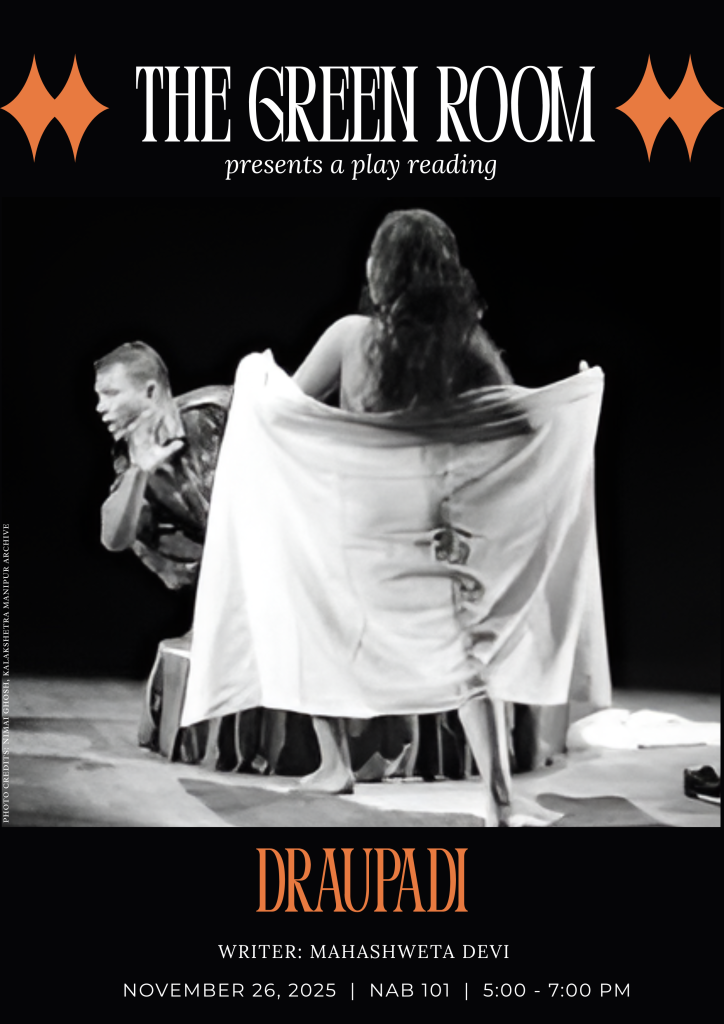 The Green Room held a reading of
The Green Room held a reading of 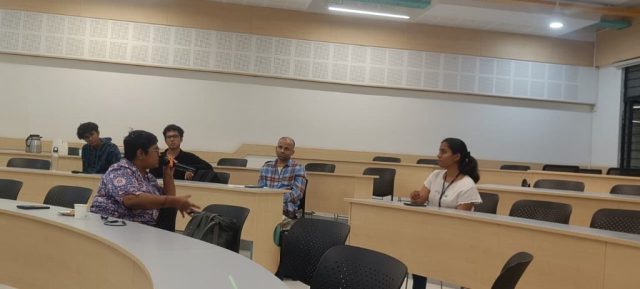
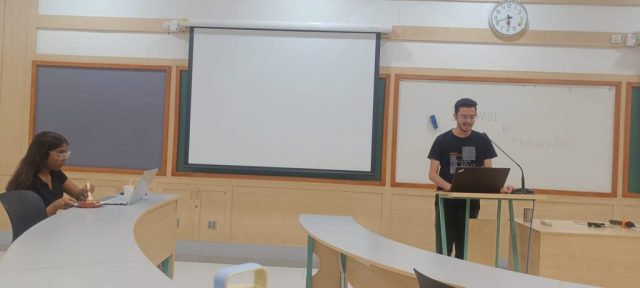
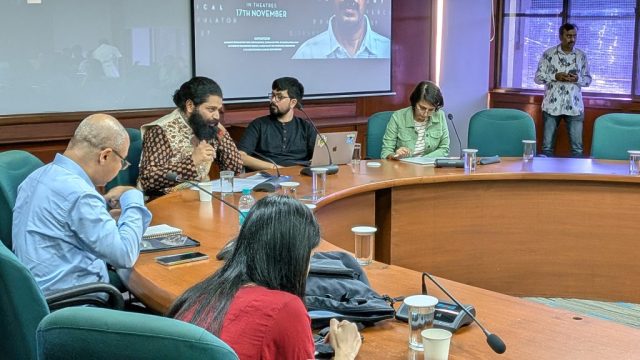
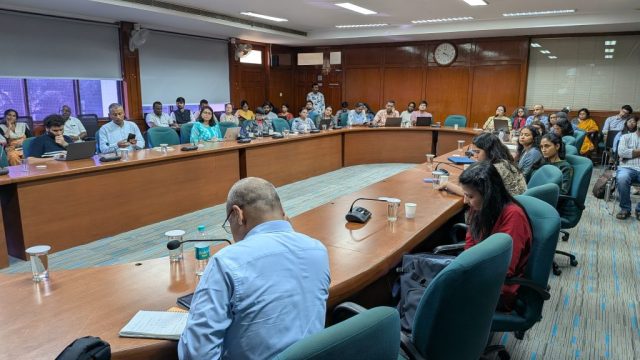
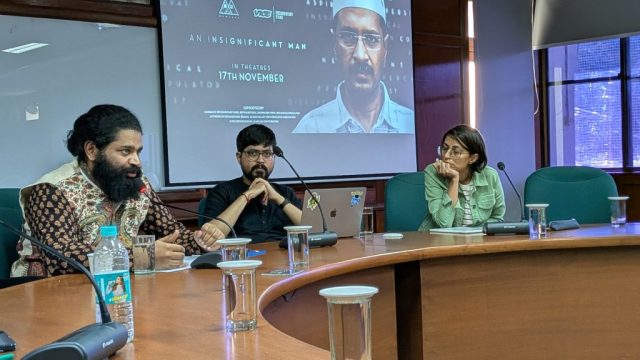
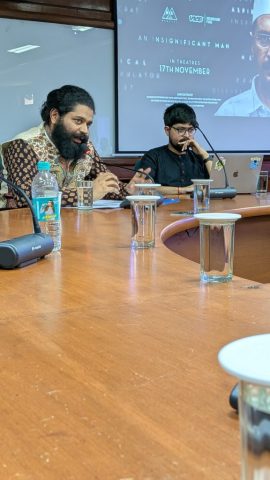
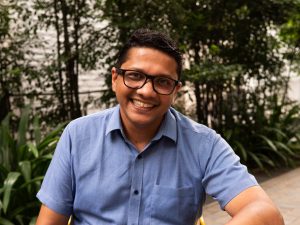 Vikram Bhat, presently the Director of the
Vikram Bhat, presently the Director of the 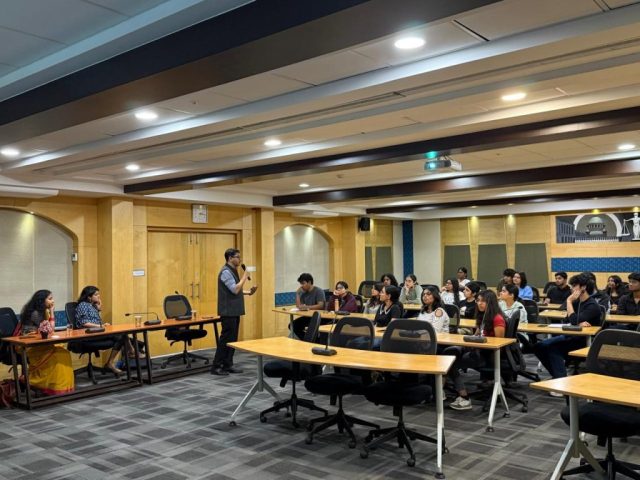
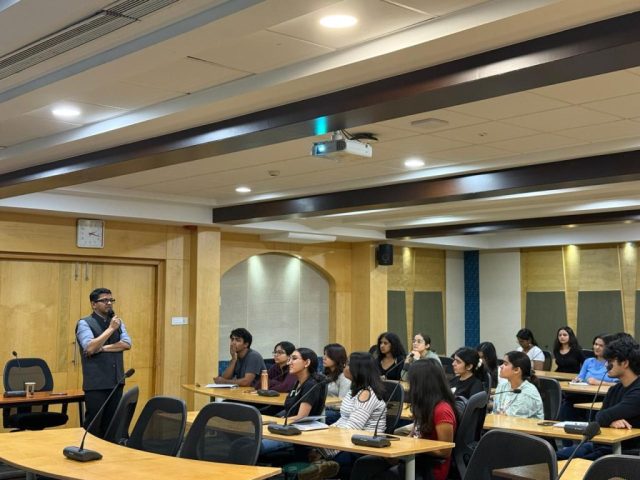
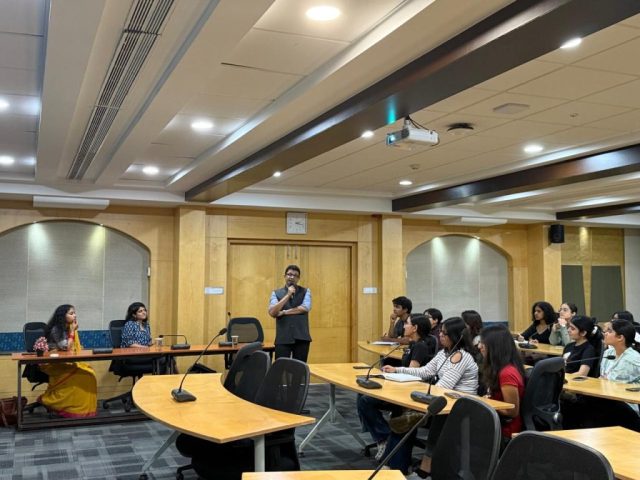
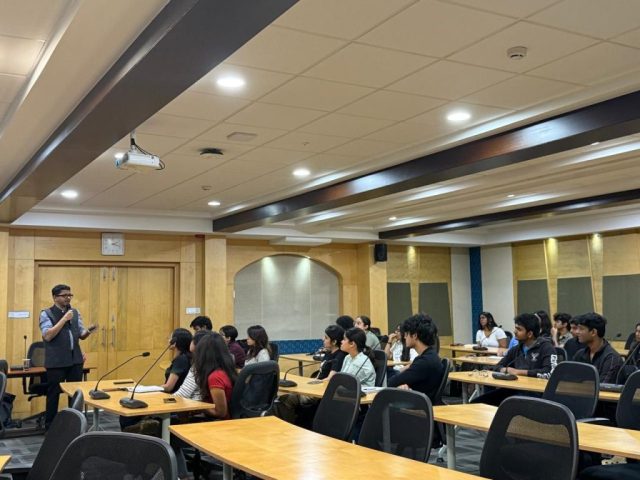
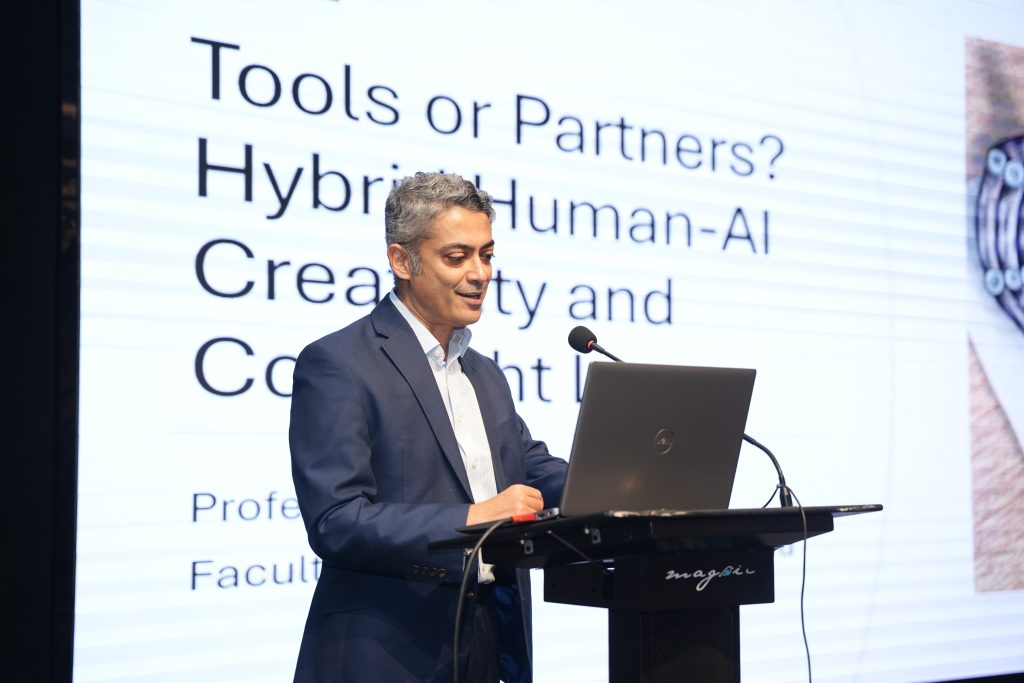 The National Law School of India University (NLSIU), Bengaluru, and the
The National Law School of India University (NLSIU), Bengaluru, and the 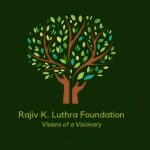 About the Sponsors
About the Sponsors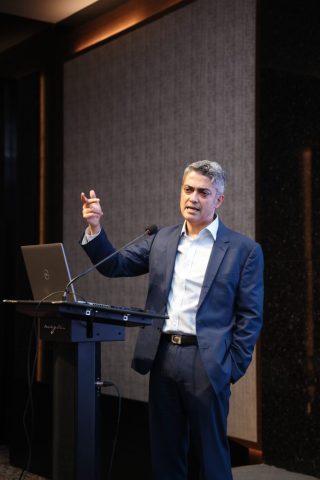
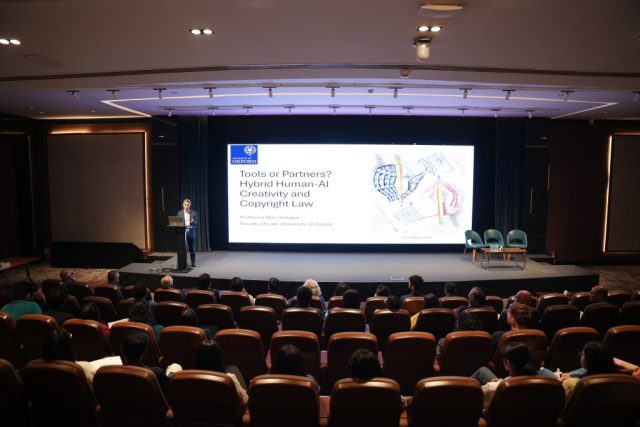
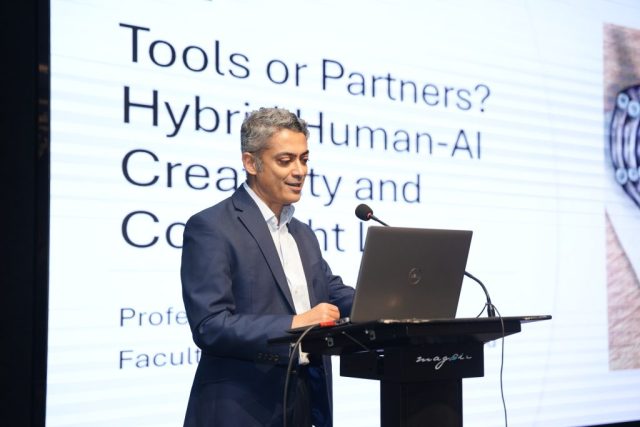
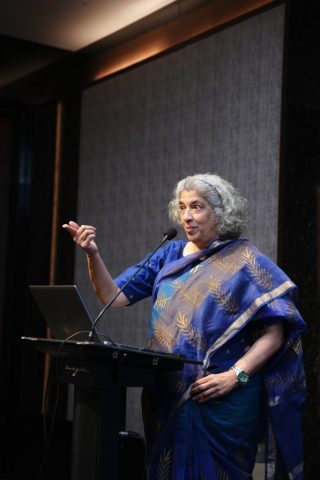
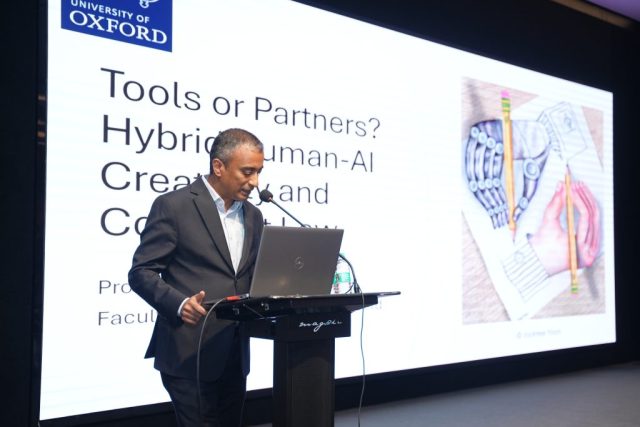
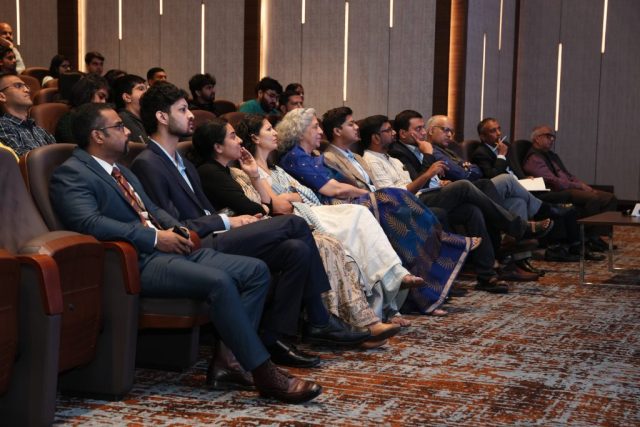
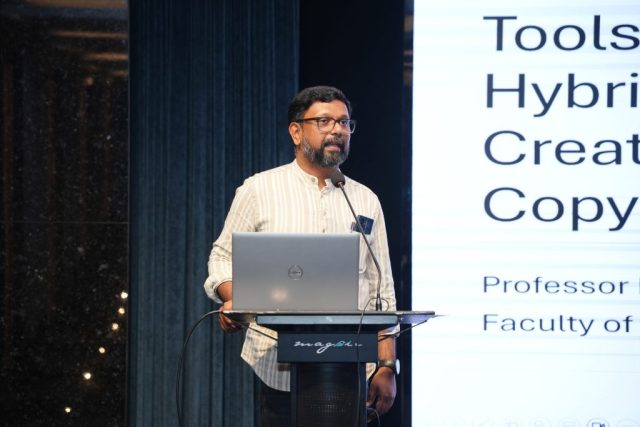
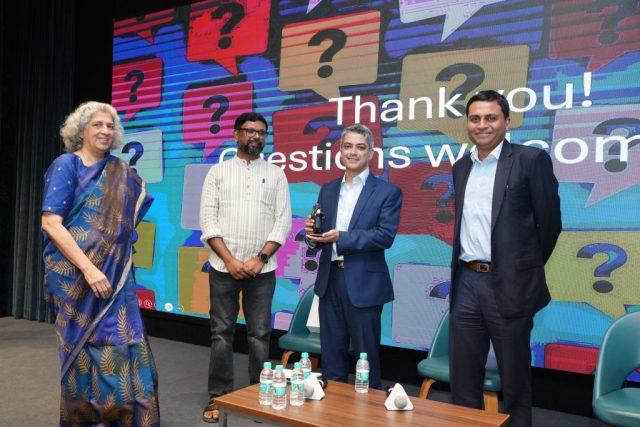
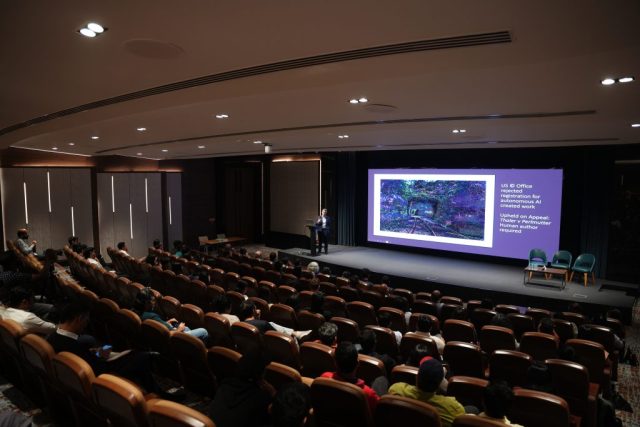
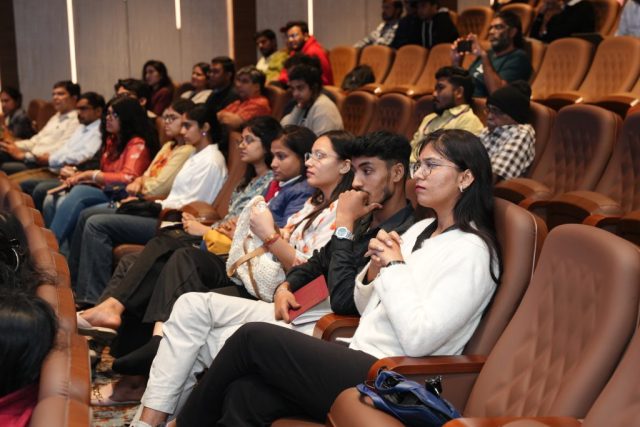
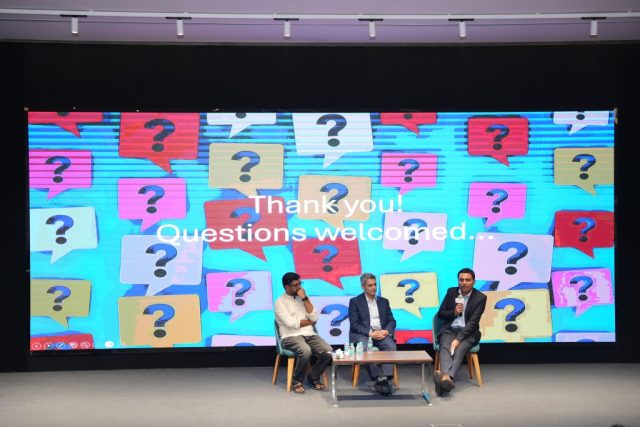
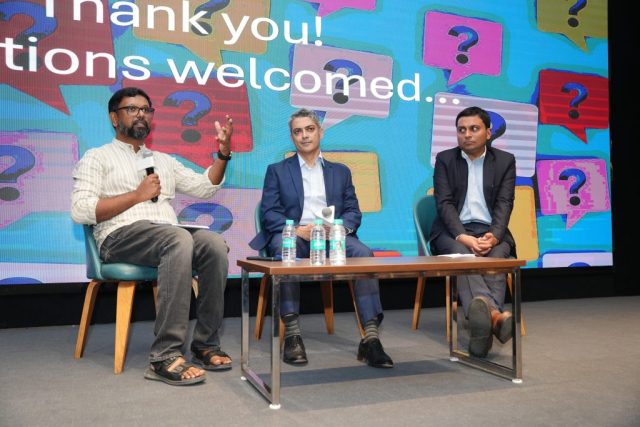
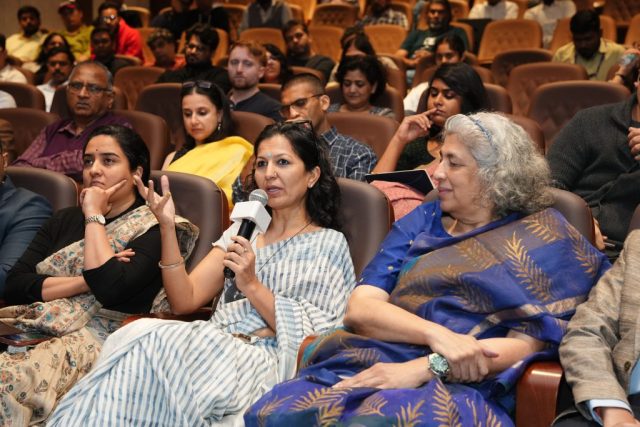
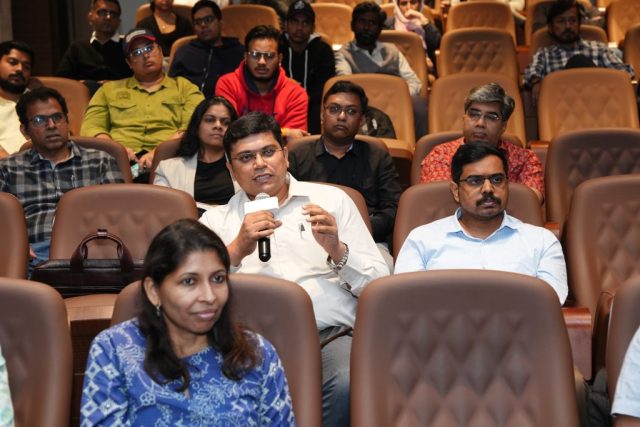
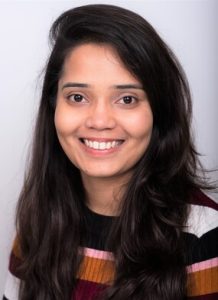
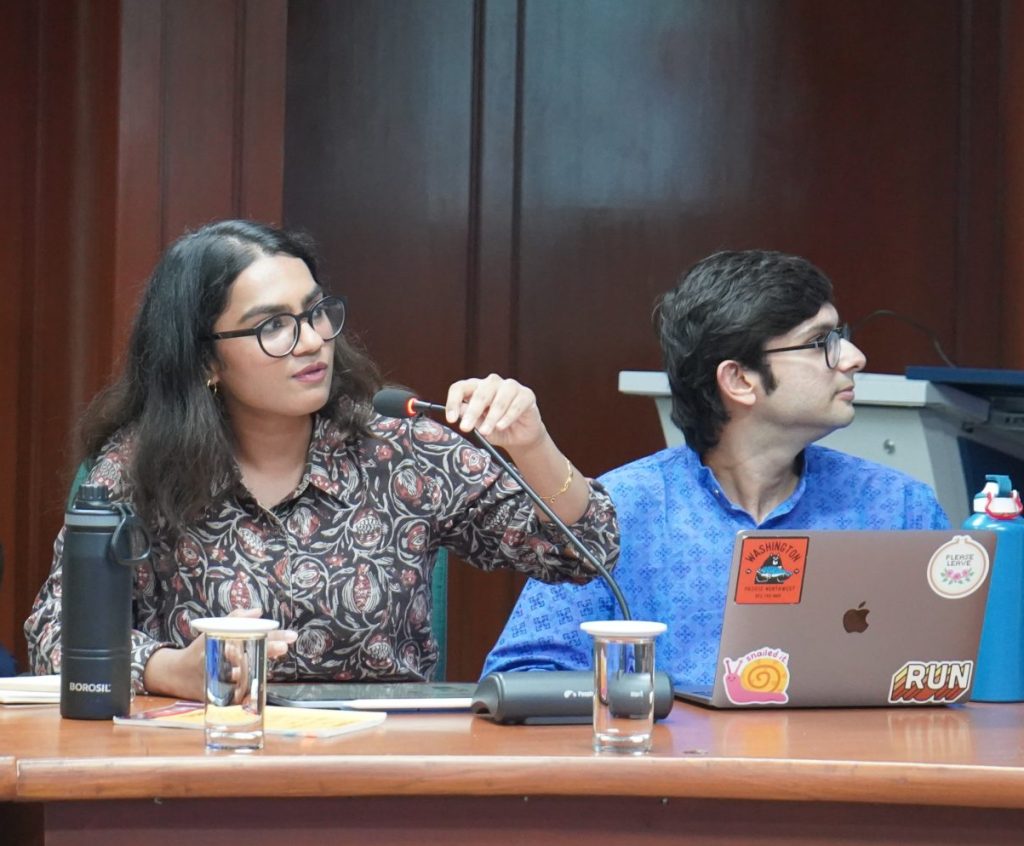 At this week’s faculty seminar,
At this week’s faculty seminar, 